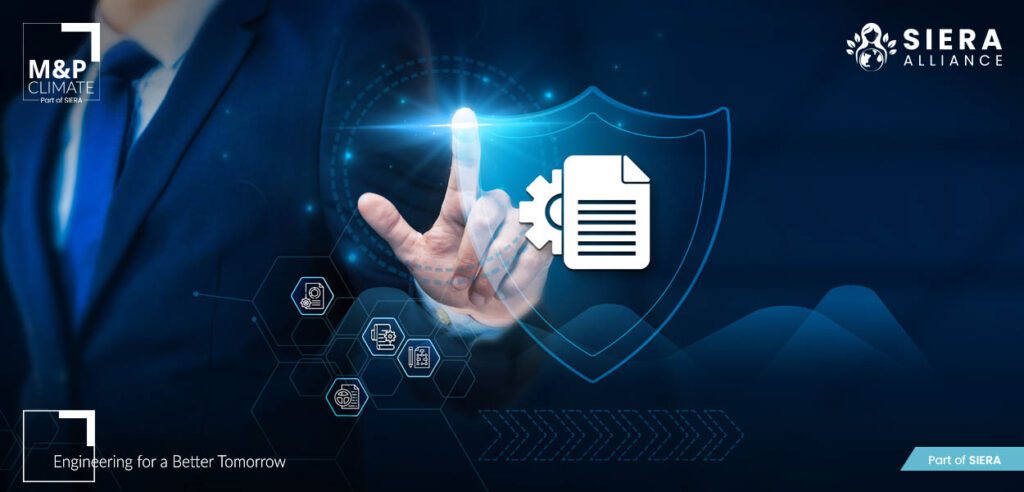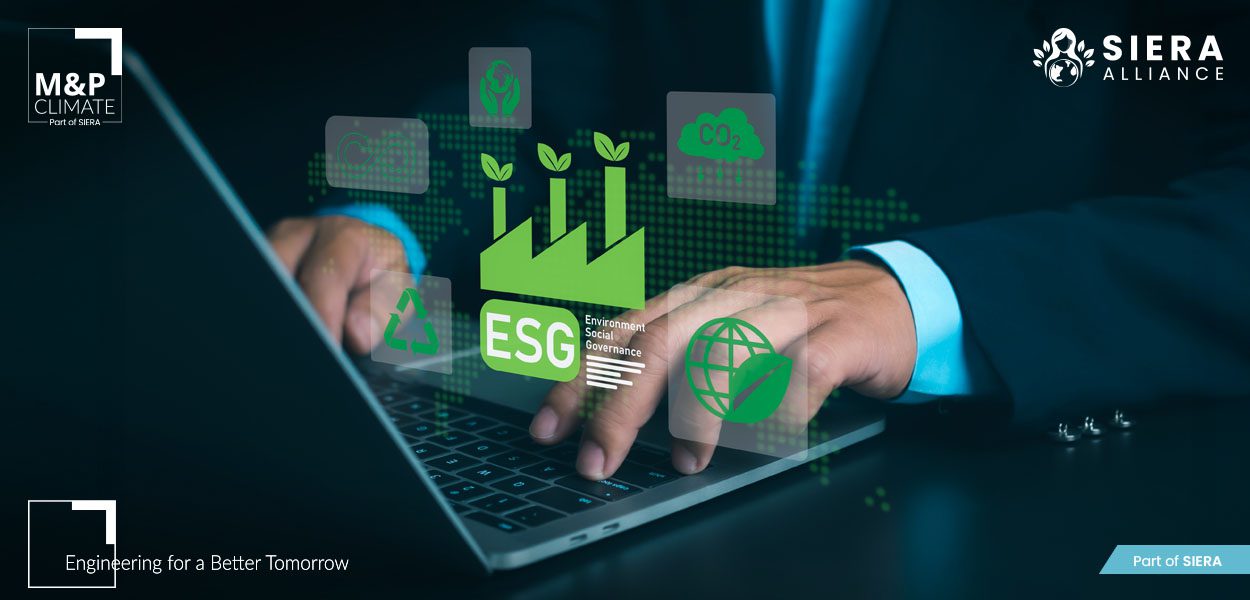Das regulatorische Umfeld ist heute dynamischer denn je. Da die verschiedenen Behörden unterschiedliche Rahmenbedingungen vorgeben, fällt es Führungskräften oft schwer, sich einen Überblick über ihre Compliance-Anforderungen zu verschaffen, was zu einem erheblichen Anstieg der Nachfrage nach Compliance-Dienstleistungen führt.
Anbieter von Compliance-Dienstleistungen bieten Unternehmen das nötige Fachwissen, um sich im rechtlichen und regulatorischen Rahmen zurechtzufinden und gleichzeitig Transparenz und Widerstandsfähigkeit zu fördern. In der heutigen Unternehmenslandschaft sind sie unverzichtbar geworden, um den Ruf zu schützen, die betriebliche Integrität sicherzustellen und das Vertrauen der Stakeholder zu fördern.
Was sind Compliance-Dienstleistungen?
Compliance-Dienstleistungen umfassen eine Reihe von Beratungs-, Prüfungs- und Implementierungslösungen, die Unternehmen bei der Einhaltung rechtlicher, regulatorischer und ethischer Standards unterstützen sollen. Diese Dienstleistungen erstrecken sich auf verschiedene Bereiche, darunter Finanzvorschriften, Umweltgesetze, Datenschutz, Arbeitsnormen, Anti-Korruptions-Mandate und branchenspezifische Anforderungen.
Zu den wichtigsten Komponenten der Compliance-Dienstleistungen gehören:
- Regulatorische Analyse: Auslegung und Anwendung der einschlägigen Vorschriften auf bestimmte Geschäftsvorgänge.
- Compliance-Risikomanagement: Identifizierung von Bereichen der Nichteinhaltung von Vorschriften oder potenzieller regulatorischer Risiken.
- Entwicklung und Umsetzung von Strategien: Ausarbeitung und Umsetzung interner Compliance-Richtlinien.
- Schulungs- und Sensibilisierungsprogramme: Aufklärung der Mitarbeiter über Compliance-Protokolle und ethisches Verhalten.
- Überwachung und Rechnungsprüfung: Einrichtung von Mechanismen für die interne Überprüfung, Berichterstattung und Abhilfemaßnahmen.
- Berichterstattung und Offenlegung: Unterstützung bei der Erstellung und Übermittlung von Berichten an Aufsichtsbehörden und andere Interessengruppen.
Diese Dienstleistungen werden von internen Teams, externen Beratern oder über digitale Plattformen erbracht, die das Compliance-Management rationalisieren sollen.
Die wachsende Bedeutung von Compliance in modernen Unternehmen
Regulatorische Komplexität in einer globalisierten Welt
Unternehmen, die in mehreren Ländern tätig sind, müssen sich in einem komplizierten Geflecht aus nationalen und internationalen Gesetzen zurechtfinden - von der EU-Datenschutzgrundverordnung (GDPR) bis zum US-amerikanischen Foreign Corrupt Practices Act (FCPA). Compliance-Services helfen dabei, diese sich entwickelnden Vorschriften zu interpretieren, das Risiko zufälliger Verstöße zu verringern und eine einheitliche Anwendung in allen globalen Betrieben sicherzustellen.
Vermeidung von rechtlichen und finanziellen Sanktionen
Die Nichteinhaltung kann schwerwiegende Folgen haben, darunter saftige Geldstrafen, Betriebsbeschränkungen, Lizenzentzug oder sogar strafrechtliche Anklagen. Beispielsweise können Verstöße gegen die Datenschutzgrundverordnung zu Strafen von bis zu 4% des weltweiten Jahresumsatzes führen. Fachleute für Compliance-Risikomanagement spielen eine entscheidende Rolle bei der Identifizierung von Regelungslücken und der Anleitung von Unternehmen zu Korrekturmaßnahmen, bevor Durchsetzungsmaßnahmen eingeleitet werden.
Schutz von Markenreputation und Marktwert
Da sich Nachrichten sofort auf der ganzen Welt verbreiten, können selbst kleinere Verstöße gegen die Vorschriften den Ruf einer Marke schwer schädigen. Egal, ob es sich um eine Datenschutzverletzung, einen Umweltverstoß oder ein ethisches Fehlverhalten handelt, die Folgen können Kundenverluste, den Rückzug von Investoren und eine langfristige Erosion der Marke nach sich ziehen. Ein solider Compliance-Rahmen stärkt das Vertrauen der Stakeholder und bietet eine Schicht Zukunftssicherheit.
Verbesserung von operativer Effizienz und Governance
Compliance-Dienste beugen nicht nur Verstößen vor, sondern fördern auch die operative Disziplin, die interne Transparenz und eine bessere Unternehmensführung. Durch standardisierte Verfahren, regelmäßige Audits und klar definierte Zuständigkeiten können Unternehmen Unklarheiten verringern, die Koordination verbessern und die Entscheidungsfindung straffen, was zu effizienteren internen Prozessen führt.
Ethische Geschäftspraktiken fördern
Das Bewusstsein der Verbraucher ist so ausgeprägt wie nie zuvor. Über die gesetzlichen Verpflichtungen hinaus geht es bei der Einhaltung von Vorschriften darum, die Geschäftstätigkeit an breiteren ethischen und sozialen Erwartungen auszurichten. Dazu gehören faire Arbeitspraktiken, Vielfalt und Integration, Umweltschutz und verantwortungsbewusstes gesellschaftliches Engagement. Compliance-Dienstleistungen helfen dabei, diese Grundsätze von Grund auf in die Unternehmenskultur einzubetten.

Arten von Compliance-Dienstleistungen
Je nach Branche, geografischer Lage und Unternehmensstruktur können die Anforderungen an die Einhaltung der Vorschriften variieren. Zu den gängigen Kategorien gehören:
Einhaltung der Finanzvorschriften
Deckt Rechnungslegungsstandards, Gesetze zur Bekämpfung der Geldwäsche (AML) und finanzielle Offenlegungen ab. Die Einhaltung von Finanzvorschriften gewährleistet die Genauigkeit der Berichterstattung und hilft, Betrug oder steuerliche Misswirtschaft zu verhindern.
Datenschutz und Cybersecurity Compliance
Behandelt Vorschriften wie GDPR, HIPAA und CCPA und konzentriert sich auf den Schutz personenbezogener Daten, Zustimmungsprotokolle und Strategien zur Reaktion auf Datenschutzverletzungen.
Einhaltung von Umwelt- und Nachhaltigkeitsvorschriften
Führt Unternehmen durch Rahmenwerke wie REACH, RoHS, CSRD und ISO 14001. Es unterstützt Umweltverträglichkeitsprüfungen, die Verfolgung des Kohlenstoffausstoßes und die nachhaltige Ressourcennutzung.
Einhaltung von Gesundheits- und Sicherheitsvorschriften
Gewährleistung der Sicherheit am Arbeitsplatz durch Vorschriften wie OSHA und ISO 45001. Dazu gehören Gefährdungsbeurteilungen, Notfallplanung und Mitarbeiterschulungen.
Die Rolle der Technologie in modernen Compliance-Dienstleistungen
Technologie ist zu einem entscheidenden Faktor für ein effektives Compliance-Management geworden. Softwareplattformen für die Einhaltung von Vorschriften bieten Automatisierung, Echtzeitüberwachung und Analysen, die die Transparenz und Reaktionsfähigkeit erheblich verbessern.
Zu den wichtigsten digitalen Lösungen für die Einhaltung von Vorschriften gehören:
- Plattformen für aufsichtsrechtliche Informationen: Kontinuierliche Überprüfung von Aktualisierungen der Rechtsvorschriften und Bewertung ihrer Auswirkungen auf ein Unternehmen.
- Werkzeuge zur Workflow-Automatisierung: Standardisierung von Prozessen wie Berichterstattung über Vorfälle, Due-Diligence-Prüfungen und Überprüfung von Richtlinien.
- Datenanalyse: Identifizieren Sie Risikomuster, erkennen Sie Anomalien und unterstützen Sie die vorausschauende Einhaltung von Vorschriften.
- Systeme zur Dokumentenverwaltung: Sichere, zentralisierte und überprüfbare Speicherung und Abfrage von Dokumenten.
Digitale Werkzeuge, wie SustainSuiteSie verbessern nicht nur die Effizienz, sondern tragen auch dazu bei, den Aufsichtsbehörden und Investoren eine proaktive Compliance-Kultur zu demonstrieren.
Beispiele aus der Praxis für die Auswirkungen auf die Einhaltung von Vorschriften


GDPR-Einhaltung im Einzelhandel
XYZ Retail, ein wachsendes E-Commerce-Unternehmen, stand vor Herausforderungen bei der Verwaltung von Kundendaten in Übereinstimmung mit der Allgemeinen Datenschutzverordnung (GDPR). Das Unternehmen verließ sich stark auf personalisiertes E-Mail-Marketing und die Analyse von Kundendaten, aber es fehlte ein klares Zustimmungsmanagement und ein sicherer Rahmen für die Datenspeicherung.
Lösung:
Um diese Probleme zu lösen, ging XYZ Retail eine Partnerschaft mit SME Scale ein, um eine strukturierte Strategie zur Einhaltung der GDPR zu implementieren. Dies beinhaltete:
- Überarbeitung der Datenerhebungsverfahren: Implementierung von GDPR-konformen Opt-in-Formularen für die Marketingkommunikation.
- Aktualisierung der Datenschutzrichtlinien: Erstellung klarer, prägnanter und zugänglicher Datenschutzerklärungen auf der Website.
- Verbesserung der Datensicherheit: Migration von Kundendaten auf einen sicheren Cloud-basierten Speicher mit Verschlüsselung.
- Ausbildung der Mitarbeiter: Schulung des Personals in Bezug auf die bewährten Praktiken der DSGVO und die Verantwortung für den Datenschutz.
- Umsetzung des zustimmungsbasierten Marketings: Anpassung von E-Mail-Marketing-Kampagnen, um explizite Opt-in-Mechanismen einzubauen.
Das Ergebnis:
Diese Maßnahmen führten zu größerem Kundenvertrauen, einer um 50% höheren E-Mail-Beteiligungsrate, der Vermeidung rechtlicher Strafen und verbesserter Datensicherheit.
ESG-Compliance in der Fertigung
Dell Technologies wollte sich der Richtlinie der Europäischen Union zur Nachhaltigkeitsberichterstattung (CSRD) anpassen, um seine Umwelt-, Sozial- und Governance-Berichterstattung (ESG) zu verbessern.
Lösung:
Dell hat eine umfassende Strategie umgesetzt, die Folgendes umfasst:
- Doppelte Wesentlichkeitsbewertung: Bewertung sowohl der finanziellen als auch der ökologischen/sozialen Auswirkungen.
- Kohlenstoff-Audits: Durchführung gründlicher Bewertungen der Kohlenstoffemissionen, einschließlich der Emissionen in der Lieferkette.
- Engagement der Interessengruppen: Zusammenarbeit mit Interessengruppen, um ESG-Belange zu verstehen und zu berücksichtigen.
- GRI-konforme Offenlegungen: Entwicklung von Offenlegungen, die den Standards der Global Reporting Initiative entsprechen.
Das Ergebnis:
Dieser proaktive Ansatz stellte nicht nur die Einhaltung der CSRD-Anforderungen sicher, sondern trug auch dazu bei, dass Dell Investitionen von auf Nachhaltigkeit ausgerichteten Fonds erhielt, was den geschäftlichen Nutzen robuster ESG-Praktiken unter Beweis stellte.
Die Wahl des richtigen Compliance-Partners
Die Wahl des richtigen Partners ist entscheidend für den Aufbau eines effektiven Compliance-Ökosystems. Hier ist, was zu beachten ist:
- Spezialisiertes Fachwissen: Wählen Sie Berater mit fundierten Kenntnissen der einschlägigen Branchenvorschriften und neuen Trends.
- Gerichtsbarkeitsübergreifende Fähigkeit: Sicherstellen, dass das Unternehmen die internationalen Standards versteht und länderübergreifende Tätigkeiten unterstützen kann.
- Technische Kompetenz: Suchen Sie nach Partnern, die digitale Tools oder Plattformen anbieten, um die Automatisierung der Compliance zu verbessern.
- Anpassbarkeit und Skalierbarkeit: Wirksame Compliance-Strategien müssen auf die Größe, den Sektor und das Risiko eines Unternehmens zugeschnitten sein.
- Erfolgsbilanz: Bewerten Sie frühere Erfolgsgeschichten, Kundenfeedback und Fallstudien.
MuP Climate, Teil der SIERA Alliance, verfügt über fundiertes Fachwissen in den Bereichen EU-Green Deal, ESG-Integration und Nachhaltigkeitsvorschriften und unterstützt Organisationen in allen Rechtsordnungen mit maßgeschneiderten, zukunftsorientierten Compliance-Strategien. Unser robustes Portfolio umfasst fortschrittliche digitale Tools wie SustainSuite, die bei der Überwachung der Einhaltung von Vorschriften in Echtzeit, der Einbindung von Stakeholdern und prädiktiven Analysen zur Risikominderung helfen.
Die Zukunft der Compliance: Vom Zwang zum Wettbewerbsvorteil
Die Einhaltung von Vorschriften entwickelt sich von einer defensiven Notwendigkeit zu einer Quelle strategischen Werts. In diesem neuen Paradigma geht es bei proaktiver Compliance nicht nur um die Vermeidung von Strafen, sondern auch um die Förderung von Vertrauen, die Erschließung von Innovationen und den Aufbau von Widerstandsfähigkeit.
Da Investoren, Aufsichtsbehörden und Verbraucher weiterhin höhere Standards fordern, werden Unternehmen, die die Einhaltung von Vorschriften in ihrer DNA verankern, einen Wettbewerbsvorteil erlangen. Durch Investitionen in das richtige Fachwissen, die richtigen Instrumente und Rahmenwerke können Unternehmen die Einhaltung von Vorschriften von einer Last in einen Vorteil verwandeln - einen Vorteil, der nachhaltiges Wachstum in einer zunehmend verantwortungsbewussten Welt ermöglicht.








